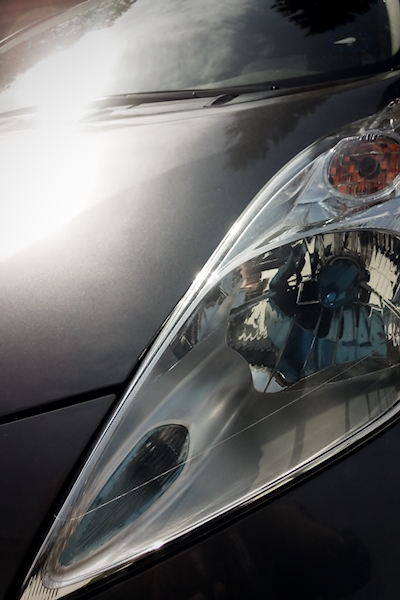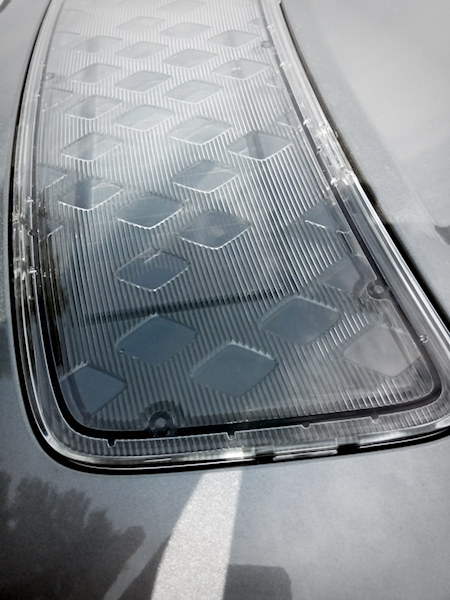Electric cars and two realities¶

The discussion about technical changes seems to start every month again. And every time it starts with something new. Some technology will either kill us, eat our children or threaten us in a completely new way or is simply unpractical.
Before the next “robots will replace us and throw us out of our jobs”-discussion starts, I had a look more into the different cultural surroundings and how they impact the actual process of getting on.
The debate about electric cars is still on fire. The contrary side comes up with a number of arguments why this technology does not and will never work. The pro side just bare seems to open its mouth.
I am following a debate on the German heise forum (probably one of the most trolling websites [WE) about a comment by Richard Sietmann called “The walls in the heads” who’s driving an electric car himself.
His comment states that he and his wife are driving an electric car for now ~18 months and he is happy with it. His car can drive 150km distance in one go and fits into his lifestyle. He wanted to get the distance from and to the airport and use it in his city life. There are arguments against privileges like driving on the bus lane and some number about how many cars and charging stations are available.
Summed up I would say it works out for him pretty well.
So far his article got more than 900 comments and while browsing it I would estimate roughly 1% agrees with the author. Sadly I cannot pin-point to any positive comment, because I did not find any, but saying all comments would disagree would surely be wrong. Found one: it basically says: good article.
The far most common reasons given why this technology “must” be a failure are
Electric cars do not reach the same distance to drive as gas driven cars. All estimations about the driving distance are too optimistic as well.
Charging the battery takes too much time. Quick-charging with 30 min waiting time is just unpractical.
The batteries are too heavy.
The whole concept does not make sense economically.

In total the number of commentators actually using such a vehicle seems to be lower than the number of fingers on one hand.
And while I can follow most of the arguments, I still must say: It is working nonetheless. Especially when you get the infrastructure in place.
All arguments provided are valid and make sense. But the fact, that driving an electric car not only for the author of the article, but also for me makes sense and works, raises a different question:
Maybe those reasons are invalid when it comes to deciding if the whole technology is usable or not?
There is a lot of generalization going on here. And a lot of arguments are made actually on different assumptions or do not address the point of the discussion. The driving distance only matters if you are driving on a daily basis that distance. Charging time can be schedule into times where the car is unused. Most private cars are at least two thirds of the day unused I would say. And so it goes on and on and on.
The actual point of the discussion seems to be missed on the basis that somebody would think to replace all gas driven vehicles with electric ones, while it actually is on the less general level of single individuals. Swap the electric car with a motorbike and you will have the same points, just other arguments.
So why is this discussion so emotionally loaded? For one reason the fear of loosing the current level of comfort and it being replaced with something yet unknown certainly is a factor here. Only a majority has experience in driving an electric car. Even fewer in actually fixing it. The gasoline driven technology has been around for decades. All the pro and cons are commonly known and most people have grown accustom to the flaws and benefits that come with it. Switching from that solid foundation, leaving and trying to use something different is not the easiest thing to do. Switching for example your phone OS would be the same. And that is not something people do very often.

Another things is also the image that comes with this technology. Common cars, with a lot of horse power, luxury setup and their settled iconic language as a status symbol, make their point and get their message straight when driving on the street. Electric cars are somewhat virgin on that. While the Tesla can already claim the higher class, the other brands fight for domination. But even Tesla, though more or less established as “the” electric car, does not really come with a message. The car is high-tech, for sure, but beside being a nerdy toy burning money as “unproven technology” is there? The term “horsepower” does not really apply, the engine sound is not existing and there is no smell of gasoline either. All the things that appeal to the man-ly image of a car are basically not available. All the sales arguments based on decades of commercials are not really present. Yet. You are not buying an experience, you are buying an electric car. Does it really surprise then that most people are skeptical and have a mostly negative opinion about this topic?
But the reason might also be somewhere else.
As many times before the solution will be quite simple: time will fix it. People will get used to this the same way as they always do. In the nineties mobile phones where posh and for snobs only (mainly because they were freaking’ expensive), now the majority uses and owns one. Same with computers in general. Remember the upcoming tablets? The whole technology sector seems to underlie some sort of initial neglect of innovation.
In order to throw some science (of half-science) into there I recommend these two theories: The diffusion of innovations and the technology adoption lifecycle. Both give (even just being a theory) a reasonable explanation for how, when and why societies adopt and adjust to new technologies. Based on that betting on time should not be a too bold guess.
There are people whose lifestyle differs from yours. And mine. For them it actually can be quite beneficial to switch to another technology. You do not have to.
In three words: Haters gonna hate